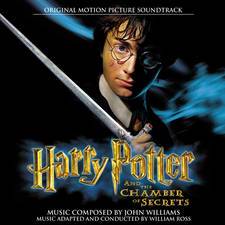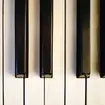Who is Toshiko Akiyoshi? Meet the Japanese pianist and composer who transformed jazz music
12 July 2024, 14:23 | Updated: 3 January 2025, 15:39

All about the trailblazing pianist, composer, arranger, and bandleader with a classical background, who has forever redefined a genre.
Listen to this article
A successful musician is content with a career lasting anywhere between 10 and 15 years. A really successful musician is lucky if they have more than 20 or 30 active years.
Only the once-in-a-lifetime talents enjoy careers spanning over seven decades. The great Toshiko Akiyoshi is one of those rare talents – still actively touring at the age of 94.
Toshiko Akiyoshi, a Japanese-American jazz pianist, composer, arranger and bandleader, has 14 Grammy nominations to her name. She was the first Japanese musician to study at Berklee College of Music, and she was even the subject of a 1984 documentary, Jazz Is My Native Language.
She was a pioneer for Asian women in jazz, and her classical training and technique made her stand out in a musical tradition that was dominated by men and changing at the speed of sound.
So who is Toshiko Akiyoshi, what is her background, and what is the scope of her impact in classical and jazz music?

What is Toshiko Akiyoshi’s background?
Akiyoshi was born in 1929 in Manchuria, China, to a Japanese family. She started playing piano at the age of seven, taking classical lessons twice a week.
In 1945, after World War II, Akiyoshi’s family lost their home and returned to Japan, settling in the city of Beppu. At the age of 16, already firm in her love of classical music, she was first introduced to jazz by a local record collector, who played her a recording of jazz pianist Teddy Wilson playing the standard ‘Sweet Lorraine’. She immediately loved the sound and began to study jazz.
Engrossed in her newfound love of jazz, she spent many of her teenage years transcribing jazz records, eager to learn everything she could about jazz piano. At 17, she started playing in a big band in Fukuoka.
Read more: How ‘Rhapsody in Blue’ became Gershwin’s greatest masterpiece

Her life changed forever when she was 22. While performing in Tokyo, the great Oscar Peterson, a prominent jazz pianist and composer, happened to be in the audience. Immediately impressed by her command at the piano, he asked his producer to have Akiyoshi record her first album with Peterson’s trusted musicians.
Released in both Japan and the United States, her debut album, Toshiko’s Piano (1954), impressed Lawrence Berk, the founder of the Berklee school. The following year, Akiyoshi wrote a letter to Berk, asking him to give her a chance to study at Berklee. After a year of back-and-forth with the State Department and Japanese officials, Berk was given permission for Akiyoshi to enroll. He offered her a full scholarship and mailed her a plane ticket to Boston. In January 1956, she became the first Japanese student at Berklee.
Akiyoshi experienced some difficulties as a result of her Japanese heritage after moving to America. Some of her audience saw her as more of an oddity than a talented musician, a Japanese girl playing jazz in America. Akiyoshi told the LA Times: “In those days, a Japanese woman playing like Bud Powell was something very new. So all the press, the attention, wasn’t because I was authentic... It was because I was strange.”
Despite the mixed reception she initially experienced, she made a name for herself in the jazz scene and forever left her mark on a genre that has never been the same since.
Read more: Who is Laufey? The genre-defying singer-songwriter bringing classical and jazz to Gen Z

Toshiko Akiyoshi Piano Trio
What is Toshiko Akiyoshi’s music like?
Akiyoshi’s classical roots and Japanese heritage are evident in her music, setting her apart from other jazz musicians. She composed using Japanese themes, harmonies and instruments, but her music remained planted firmly in jazz, reflecting influences from Duke Ellington, Charles Mingus and Bud Powell.
“My music is mostly programmatic,” she explains. “Most of the big band writers were arrangers rather than composers, except for Ellington, of course – they played popular tunes and had a singer, and so on, but their music didn’t tell a story.
“In my mind, it’s very important to tell a story. My music has to have a certain attitude, it must reflect my view of certain things. That’s what I like to bring into the music I write – a point of view. That’s the difference between a writer and an arranger.”
By integrating distinctly Japanese sounds and textures into American jazz forms, she used her foundations in classical technique and style to underpin her compositions, carving out a unique space for herself in a burgeoning genre reaching its cultural zenith in the 50s and 60s.
Watch her perform her brilliant composition ‘The Village’ in the video below to get a sense of her signature sound, with the Japanese harmonies shining through instantly.

Toshiko Akiyoshi - The Village
How many albums does she have?
One of the most impressive features of a first encounter with Akiyoshi’s work is her staggeringly lengthy discography. As one of the most prolific artists of a generation, she has released 75 albums throughout her long career.
Her debut album, Toshiko’s Piano, was released in 1954, and her most recent album, The Eternal Duo! was released in 2019. She has a wide range of live albums and ensemble recordings, from solo piano collections to trios and quartets to big bands. Throughout her career, she has recorded continuously, averaging one studio album release per year for well over 50 years.

What awards has Toshiko Akiyoshi won?
Akiyoshi has won and been nominated for several of the biggest awards and honours in the music industry. In 2007, she was awarded the US’s National Endowment for the Arts Jazz Master honour. She won the Jazz Album of the Year award from Stereo Review for her second album, Long Yellow Road in 1976, and has collected a host of awards and titles from jazz publications and music magazines over the years.
A 14-time Grammy nominee, Akiyoshi has been nominated for Best Jazz Instrumental Performance 10 times, and for Best Arrangement on an Instrumental four times.
In 2004, she was awarded the Order of the Rising Sun, an award recognising people for exceptional service to Japan.
Who is Toshiko Akiyoshi’s family?
In 1959, Akiyoshi married saxophonist Charlie Mariano. After forming several bands together and having a daughter, Michiru, together, the couple divorced in 1967. During the same year, she met saxophonist Lew Tabackin. Two years later, she married Tabackin and the pair moved to Los Angeles in 1972.
Akiyoshi’s daughter, known as Monday Michiru, is a singer-songwriter who, like her mother, blends a variety of styles and genres together to make up her own unique sound. Watch some footage below of a recent performance from the mother-daughter duo at the Blue Note Tokyo, a prominent jazz club in Japan – given when Akiyoshi was 92 years old!

"TOSHIKO AKIYOSHI SOLO Guest:MONDAY MICHIRU" BLUE NOTE TOKYO Live 2022
As a performer, Toshiko Akiyoshi has redefined what it means to be a successful jazz pianist. Her mastery and command of the keys, as well as the classical precision of her playing, raised the bar for performers everywhere. Her brilliant balance of musical instinct and improvisation with technical polish accelerated jazz to new heights.
As a composer and arranger, she has exponentially expanded the sound world of a genre that was already defined by its diversity and fusion of influences, introducing Japanese harmonies and melodic patterns to a Western tradition for the first time. She moved the goalposts of jazz to be even more far-reaching than they already were, inspiring a myriad of others to imagine sounds and rhythms in contexts they’d never considered.
As a bandleader, and as an Asian woman in America, she paved a new path for women in a genre dominated by men. With her raw talent and utter brilliance, she established a foothold for not only herself, but for generations of women to follow in her fearless footsteps.









































